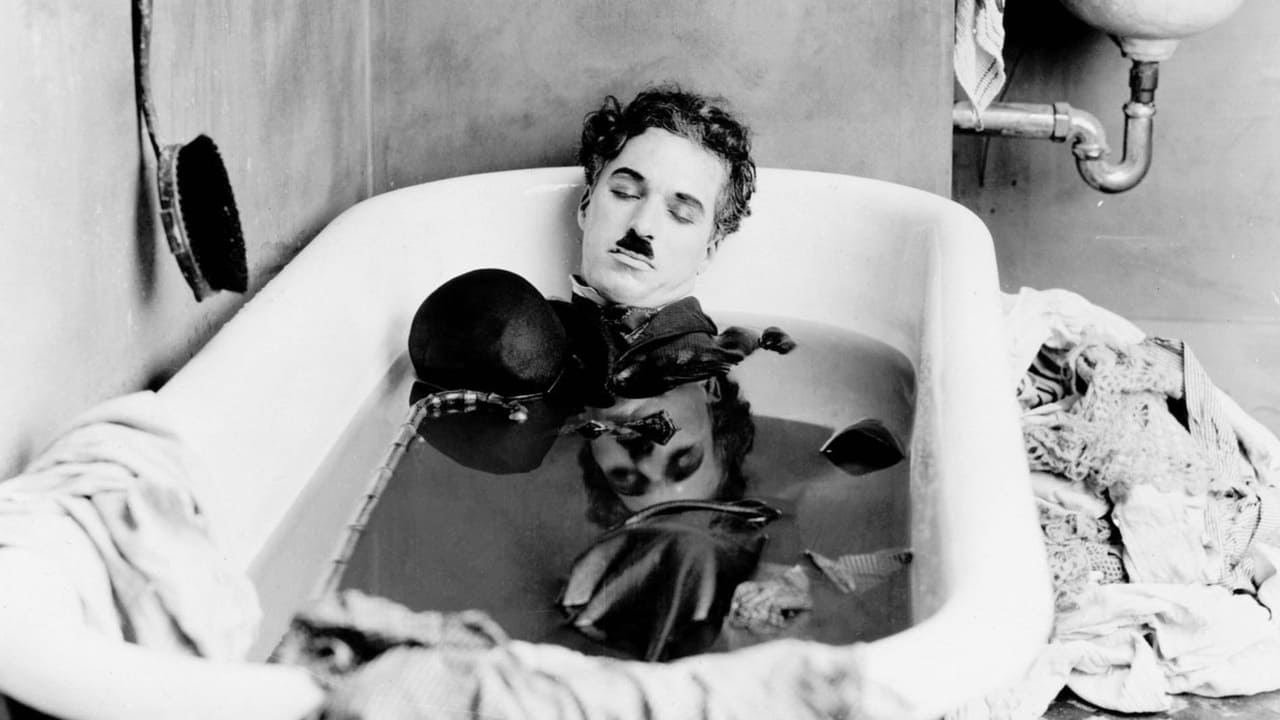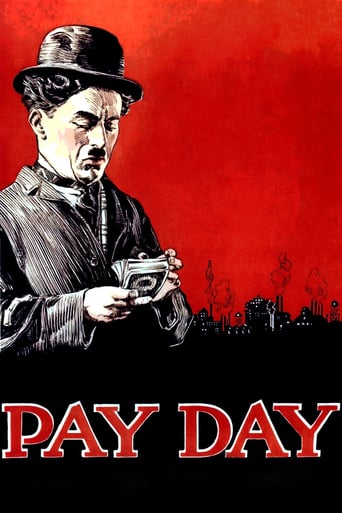Nonureva
Really Surprised!
Brendon Jones
It’s fine. It's literally the definition of a fine movie. You’ve seen it before, you know every beat and outcome before the characters even do. Only question is how much escapism you’re looking for.
Sameer Callahan
It really made me laugh, but for some moments I was tearing up because I could relate so much.
Celia
A great movie, one of the best of this year. There was a bit of confusion at one point in the plot, but nothing serious.
Neil Doyle
Altogether amazing little short with the comic at his best as a brick layer who is late on the job and presents a flower to his monstrous boss (MACK SWAIN). Swain looks so much like Billy Gilbert that I thought that's who it was at first. Swain orders him immediately to work and the fun starts.A particularly amusing lunch hour sequence is full of sight gags requiring perfect timing. Charlie gets paid, then has to deal with an overbearing wife who sleeps with a rolling pin in her arms, ready to pounce on him when he doesn't come home from work on time. Instead, he's at the local pub having a night out with the other workers.The pub sequence leads to other amusing sight gags as he and a fellow worker struggle to get out of the rain and onto a streetcar.No wonder Chaplin considers this one his favorite silent short. Again, Edna Purviance has little to do but it hardly matters. It's Chaplin's limelight and that's all audiences wanted.All of the stunts are exhibited in perfect timing and are the mark of genius.
CitizenCaine
Chaplin edited, wrote, produced, and directed this film for First National Pictures, his last short film before focusing exclusively on feature films. In it, Chaplin plays an industrious worker with an amazing ability to lay bricks at lightning speed. There are numerous sight gags, especially at lunch time when the workers take their break involving an elevator and discarded food items. Chaplin feels he's been cheated out of some pay, but the boss let's him in so many words that it's a closed issue. Edna Purviance is the boss' daughter, but she has nothing to really contribute in this film. Chaplin tries hiding his pay from his Philistine wife played by the behemoth Phyllis Allen, but she's quick to discover his hiding place. Chaplin ends up smuggling some money back from his wife and heads to a Bachelor's Club and stays out drinking most of the night. He has a heck of a time trying to catch a trolley ride home, and when he does stroll home in the wee hours, he almost fools his wife into thinking he was never out all night until the alarm clock goes off at just the wrong moment. Of course, with a wife like his, sleeping with a rolling pin in hand, can we blame him for drinking? This was supposedly Chaplin's favorite short film, and it's understandable in that it contains some common themes that find themselves in many of his films. It's a tale of a workingman, everyman with a nagging wife, trying to just make it day to day in a world that seems stacked against him. However, the film is not really as funny or as good as many of his other films from this period. **1/2 of 4 stars.
st-shot
Chaplin's tramp has a job in this half hour short which comically depicts the plight of the era's laborer that has changed negligibly since. There is little plot to go around but plenty of perfected sight gags by the Silent master as he works and drinks with co-workers and fends off his shrewish rolling pin wielding wife who is intent on collecting his entire pay. The most deft comedy bits are on the job as he does amazing things with a lift as well as a scene grabbing bricks being tossed to him (albeit achieved by reversing the negative). The drinking with co-workers keeps the laughs going and continue through the final confrontation with the wife as Chaplin's uproarious balletic grace remains in fine form from start to finish.
MartinHafer
This film has some highly imaginative and well-timed stunts--all revolving around Charlie's job at a construction site. All the near-falls and accidents remind me of Sweet Pea from POPEYE cartoons--as the baby is nearly killed again and again but miraculously escapes. In Chaplin's case, it involved a funny sequence when he ALMOST falls down an elevator many times, dropping objects accidentally on those below and a really interesting sight gag involving guys throwing bricks up to Charlie who catches this with complete ease (it was done by running the film backwards). Later, Charlie's hideous and scary wife is introduced and it goes from a work comedy to a domestic one. In a way, this was a minor disappointment, as I preferred the faster paced work stunts, but all-in-all this is a funny and well executed short.

